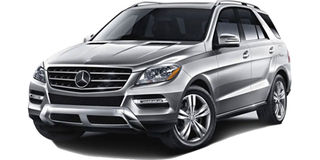Ask the Mechanic: How can I avoid car cloning?

Hello Paul, what is car cloning? A friend said I need to be aware of it when buying a used car.
Thomas.
Hello Thomas, car cloning is vehicle identity fraud or theft. This is when a vehicle’s registration number plates, vehicle identification number (VIN) or chassis number are fraudulently transferred to another car. This fraud can be done by individuals who want to evade customs taxes or by thieves who want to disguise and sell stolen cars as legitimate ones. Cloned vehicles can be sold or bought on the Internet or locally by unscrupulous car dealers. Buying a cloned car will also get you involved in the crime, since buying stolen property is illegal.
The cloned car can get impounded or confiscated by the police or customs during security or customs checks. Also buying spare parts from authorised car dealerships is difficult if you have a cloned car since appointed car dealers use VIN details to identify the correct parts.
If your car’s VIN details are attached to a car with a different engine, the technician will not be able to identify correct parts for you. You can avoid buying a cloned car by following a few sensible guidelines:
Choose carefully where or from whom you buy a used car.
Consider the reputation or review of the website, local used car showroom or freelance car seller. If you are talking to a random car dealer or broker, do a back ground check and where possible, get a known referral.
Insist on seeing official paperwork, which can be independently verified with Uganda Revenue Authority customs and Ministry of Works registration and licensing department. This will help confirm the registration number, VIN or chassis, engine number and registered owner of the car. If buying from a bond or Internet, insist on seeing the auction report, logbook or pre-sale registration logbook, pre-shipment technical inspection report and port inspection report. Information should be readily available. If not, then hold back on making a purchase.
Scrutinise and compare the VIN or chassis number with the one displayed on the windscreen left bottom corner, engine bay, door pillar or under the driver’s seat on some car models. A mechanic can help you and even use a diagnostic computer to confirm the VIN or chassis number of the car in question. Any signs of alteration or tampering should call for further scrutiny or withdrawal of intention to purchase.
Ask for car service or repair history.
This will give you an idea of the car’s health and security. Written repair history can be a useful confirmation of vehicle identity and previous ownership details.
Where in doubt, ask the seller for permission to talk to the garage or service provider; any hesitation to volunteer information is a red flag. Even online car sellers should be able to provide official car technical reports. Used cars from the United Kingdom can have the VIN and registration as well as technical conditions checked online before you purchase it.
Be wary of unusually low prices or too good to be true deals. It is also always better to meet the current owner of the used car you want to buy, it is the first proof of legitimate ownership.

PLEASE GUIDE ME ON HOW TO CHOOSE ENGINE COOLANT
Hello Paul, which engine coolant should I choose for my car?
Agnes.
Hello Agnes, the choice of engine coolant for your car will depend on the manufacturer’s recommendations, climate (summer or winter) and the specific needs of your car engine. The car user manual will outline the recommended coolant type. When your car engine is running, it produces a lot of heat and, therefore, needs cooling all the time to prevent engine component damage due to excessive heat.
Changing engine temperatures also cause corrosion and lubrication challenges. Engine coolant is designed with chemical additives, which give it a higher boiling point than plain water. This allows engine coolant to carry away or transfer heat from the hot engine to the cooling radiator. Coolant is also blended with anti-corrosion additives to protect the metal surfaces in the cooling system. Coolant is designed with a lubricant molecule, which prevents metal sheer or frictional wear of moving parts in the cooling system.
There are mainly two types of engine coolant fluids for our hot climate:
Ethylene Glycol based coolant, which is green in colour. It is the most commonly used type of coolant for most vehicles and provides corrosion protection and lubrication. The other common type is the Propylene Glycol based coolant which is usually orange, pink or red in colour. This coolant type is commonly found in newer vehicles because it is less toxic and less harmful to the environment. This coolant equally cools the engine and provides cooling system component lubrication as well as corrosion protection.
When you buy coolant for your engine, check what it is blended with and whether it is made by a reputable source. You can google to get additional information about the coolant product and its suitability for your car engine. Using plain water to cool your engine will cause costly damage from overheating, corrosion and lack of lubrication. In equal measure, engine coolant should be renewed every two years as the chemical additives in it deteriorate overtime.
Send sms: mycar (space) your comments and questions to 6933
Or email them to: [email protected]




